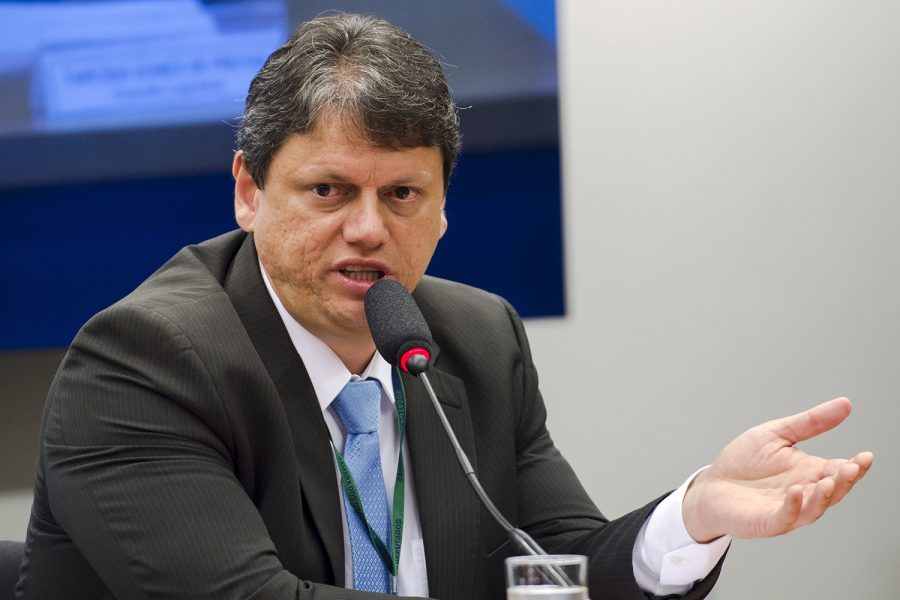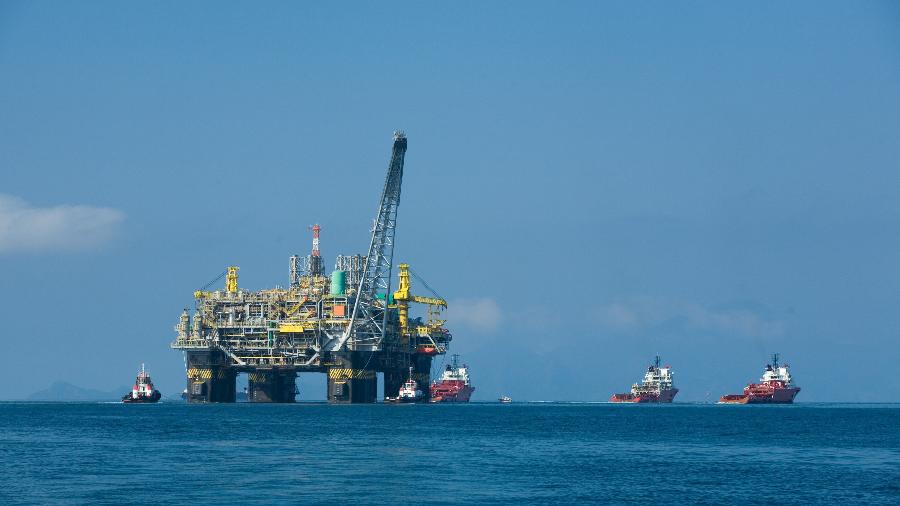RIO DE JANEIRO, BRAZIL – While attending an event on November 12th, at the headquarters of the National Bank for Economic and Social Development (BNDES) in Rio de Janeiro, Brazil’s Minister of Infrastructure, Tarcísio de Freitas, said that the government has been focusing on building a friendly environment for business, and that this has attracted investors.

According to him, some changes have contributed to this, such as the approval of the Social Welfare reform.
According to the minister, there is now a growth in retail, industrial activity and moderate rebound in employment, which, along with the economic upturn, is expected to grow even more.
“We are really seeing the effects of the regained credibility. Credibility and investment go hand in hand,” he said, adding that he believes a reassessment of the country’s risk rating is imminent.
“The economy is taking its first steps toward growth, I’m sure the reclassification of risk will come,” said the minister, who attended the second annual Cebri-BNDES conference, at the bank’s headquarters in downtown Rio de Janeiro.
According to Freitas, Brazil is currently experiencing the ideal moment to tackle one of its main issues, infrastructure, which will be encouraged to increase productivity.
This year, 27 successful infrastructure project auction bids were held, he said. The intention for next year is to hold between 40 and 44 auctions. “A very bold goal, but possible,” he said.
Schedule
The infrastructure minister said that the government does not intend to let the holding of auctions lapse into 2022. He considers that the election year will not interfere with the holding of bids.
“There is no disruption, even more so in a country where there are clear rules and contract stability. Brazil is a country that respects contracts,” he said.
The auctions are expected to be held in late 2021 or early 2022, but the rules must be followed for that purpose. “The process begins with the study of projects that take six to eight months to be ready. Then there is a public hearing, which takes between 45 and 60 days. There is time to analyze and incorporate the contributions that come out of the public hearing and then make adjustments to the proposed contract. After these steps, a favorable Federal Audit Court (TCU) opinion is required. Then the public notice of bid is issued,” he explained.
According to the minister, the government is trying to provide an extended period of time between the publication and the bid, in order to allow investors to study and be able to translate all the documents. “The plan is to auction off the next group of airports in late 2021 or early 2022.”
In Freitas’ view, there is no distinction between the best and the worst auction. “An auction, for us, is just like a son. We all love them. The love for children is the same. The same thing is the infrastructure auction. We all love them the same. Every auction is important.”

Transfer of Rights
The auction held last week for the transfer of petroleum rights was “excellent” in the minister’s opinion. He compared the figure obtained with the value of the bids already made. “If we add all [prior] auctions, including the Libra [field], there was total revenue of R$62 billion. Now, in a single day, R$70 billion have been collected. If we take all the investments made around the world, including subscription bonuses, we get to about R$220 billion in revenue. With this year’s auctions, we raised R$80 billion. So, Brazil is taking almost 40 percent of the global oil and gas market.”
According to Tarcísio de Freitas, the auction represented the solution to issues that had been dragging on. “We had a transfer of rights contract, which was old and needed to be concluded; it happened in ten months. We defined Petrobras’ compensation rule, which is controversial. We defined the bid qualification rules, the allocation of resources of the collected amount, and this was all done in ten months. There was approval of a PEC [Proposed Amendment to the Constitution], there was approval of a PL [Bill of Law]. There were negotiations with Petrobras. The auction was held and raised R$70 billion.”
The minister said that investors noted the risk of entering other blocks and that, after bidding, they would still need to negotiate the amount for compensation with Petrobras. “The result was no different than expected. There was no lack of clarity. It’s a market game. Petrobras knew it had bargaining power and used this power to preserve the oil fields. The outcome was natural,” he added.
Debentures
The minister stressed that 2019 will be the best year in terms of issuing debentures involved in infrastructure projects. The government is preparing a means of improving this type of investment and will introduce debentures, to increase incentives for inventors, allowing them to issue bonds abroad in local currencies and without charging tax on capital returns. “It’s something that has attracted the attention of foreign investors.”
Freight rates
Concerning the price controls on freight rates for road haulage, the minister said that the current schedule is “good” and is within the legislation, but the government is working on an adjustment based on a study by the University of São Paulo. “Today we have a schedule of prices, which is in the law. We are working on adapting to the study made by Esalcq [Luiz de Queiroz School of Agriculture of the University of São Paulo]. Some inconsistencies found are being corrected. We have even published a public consultation on this, and soon we will have an updated edition.”
Source: Agência Brasil

